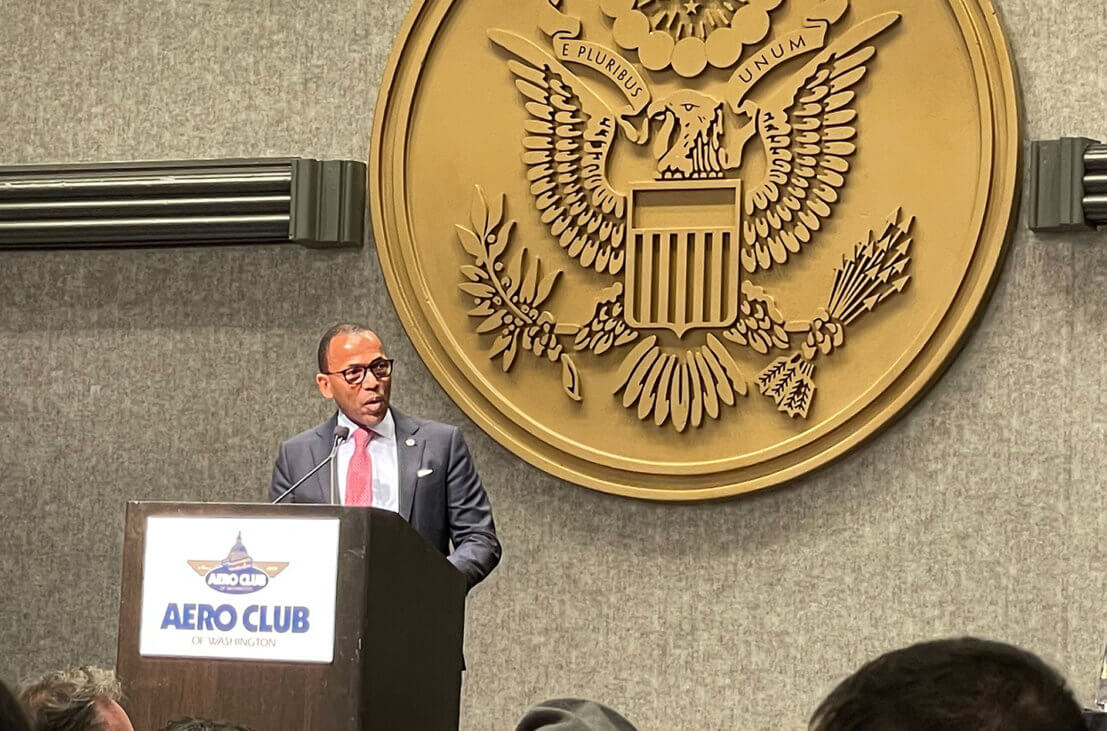
Nov. 18, 2022
The future of aviation will be driven by safety, equity, and innovation – that’s the message Acting FAA Administrator Billy Nolen delivered this week at the Aero Club’s monthly luncheon.
Speaking in Washington DC, Nolen highlighted recent milestones in the aviation industry and described his vision for its future.
He emphasized that safety is the core of aviation and noted that the FAA is working to build new, innovative technologies that will help make aviation safer than ever. “Within the FAA, we are building toward using artificial intelligence to yield quality, consistent streams of safety data,” Nolen said.
Nolen also addressed growing expectations that advanced air mobility (AAM) aircraft will be widely available by 2028. He said the FAA will announce an implementation plan next May as the industry works to scale production and use of AAM.
On the FAA Reauthorization bill that Congress is set to take up next year, he said, “The legislation should not be used to entrench the past. It should accelerate the next era of aviation and take big leaps.”
He also highlighted the need for diversity, emphasizing that if the aviation industry wants to grow, it must make room for new ideas and embrace change. “Today, we are on the cusp of another new era. Drones, electric air taxis and other kinds of innovation that promise a future where science fiction is more like science fact. But we will never make the big leagues unless we set a place at the table for the disruptors.”
Nolen praised the potential role the next generation will play in the industry’s future workforce, applauding a group of high schoolers in attendance. “The people who are going to help us solve our toughest challenges are not sitting here today.”
Nolen also highlighted the many ways the industry is focused on sustainability, including through increased production and use of sustainable aviation fuels and more fuel-efficient aircraft. However, Nolen stressed the need for continued progress to ensure that the industry will be able to successfully meet its net-zero goals by 2050.


 International Business Aviation Council Ltd.
International Business Aviation Council Ltd.